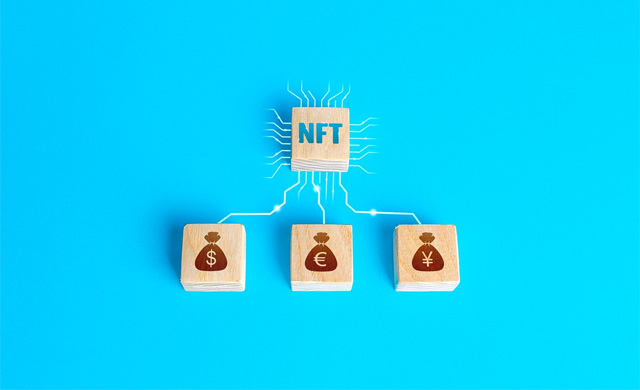As such, the crypto economics of NFTs is still a relatively new field, with some of the leading projects being CryptoKitties, Etheremon and Decentraland. In the below mentioned, we will cover what NFTs are, how non-fungible tokens differ from fungible tokens and list a few use cases for these unique assets.

The platform charges zero commissions on profitable and non-profitable trades for a costless bitcoin trading venture visit NFT Profit . The below-mentioned portion will address two critical questions about non-fungible tokens: 1. what is a non-fungible token? 2. How does a non-fungible token differ from a fungible token?
Non-fungible Token Definition
A non-fungible token is any unique digital asset that possesses value. This definition may seem quite similar to what we would typically consider an ERC20 token, with some slight differences. To highlight how this seemingly irrelevant difference can be both crucial and subtle, let’s consider the following example: Let’s say you are a collector of rare comic books. You have bought a few Super Mario comics which you like.
To differentiate them from the rest of your collection, you decide to mark them with a unique stamp or serial number. This way, you know that this particular issue of Super Mario is scarce and thus more valuable to you. From the NFT point of view, we could say that this Super Mario comic book is a non-fungible token.
Now let’s look at how non-fungibles differ from fungibles:
Fungibility can be defined as “the property in which an identical unit can be interchanged without change. It is the opposite of distinguishability or non-fungibility.” For example, a single Bitcoin (BTC) can be divided into 100 million parts, making each part as valuable as the original BTC. Since each fraction on its own is indistinguishable, it shares all the same attributes as all other fractions. Some users may not even realize that they are using fractions of BTC when buying things on e-commerce platforms, such as where one only needs 1 satoshi to pay for a product.
By their very definition, Fungible tokens are interchangeable and therefore have no value on their own. The main reason why we hold fungible tokens is to be able to use them for payments or trade them for other assets.
Non-fungible tokens, on the other hand, can be uniquely defined and provide their value. As aforementioned, the comic book collected or any other rare or exclusive item is a non-fungible token. You can’t use this comic book to pay for your lunch or buy another asset. There is no way anyone could replace your comic book with anything else you may have without any noticeable difference between your comic book and the replacement.
As we have seen above, a non-fungible token is not just any cryptocurrency token, but rather, it’s an asset that possesses unique value. So how is this different from regular tokens or asset that is fungible? The main difference is that non-fungibles are assets with unique value because they can be uniquely defined. This uniqueness can be derived from various factors, including:
– Rarity: The most common form of uniqueness is a rarity. In the example of comic books, there is only a finite amount of issues, and due to different reasons, they are considered rare editions. This rare edition you own is more valuable than a regular one since there are fewer copies around. The same holds for many collectables, such as CryptoKitties, which have unique features and attributes that make them different from the rest of the cats.
Since they have their features and attributes, they can be described as non-fungible tokens.
– Authenticity: Authenticity is another form of uniqueness we can derive from an asset. It means an asset has a unique history or background from where it came. For example, the artist may have signed a comic book, which makes it more valuable since the signatures are highly sought-after collector items.
– Ownership: This particular property derives from the fact that you own or have access to an asset, whether directly or indirectly. For example, a rare comic book may be in your possession, giving you more value than the same comic book owned by someone else. It can be contrasted with owning cryptocurrency since if anyone else has this coin, that individual also owns it.
– Intrinsic Value: In contrast with rarity and authenticity, the intrinsic value on its own does not have much meaning in terms of NFTs.
These are some fundamental differences between non-fungible tokens and other conventional fungible tokens.

 Hot Features
Hot Features













